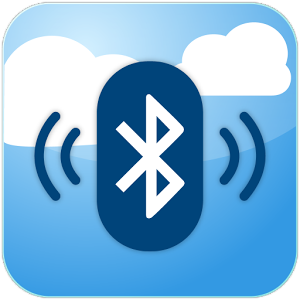
Today’s AWT News Update takes a closer look at AR, improvements in App Store customer service, and how Bluetooth LE will soon gain a lot of range:
- A writeup on TechCrunch pointed out how Apple is well-positioned to “own” the augmented reality market
- Apple adds a new role to iTunes Connect, letting developers designate a person to respond to App Store reviews
- Bluetooth LE gains a mesh networking piece, which could vastly improve the capabilities of home automation networks including those using Apple’s HomeKit framework
The text version of the podcast can be viewed below. To listen to the podcast here, click the play button on the player below. Apple News readers need to visit Apple World Today in order to listen to the podcast.

Text Version
This is Steve Sande for Apple World Today, and you’re listening to the AWT News Update for July 18th, 2017.
Tim Merel of Digi-Capital wrote an interesting contribution to TechCrunch today, and if he’s correct, Apple may very well “own” the augmented reality market for years to come. Merel notes that augmented and virtual reality is not only the fourth wave of consumer tech; it’s actually four different big waves – mobile AR software, mobile AR hardware, tethered smartglasses and standalone smartglasses. How big a splash do these four waves make? Well, AR accounted for about $1.2 billion in revenue in 2016, and it’s expected to grow to $83 billion by 2021. Merel points out that Mobile AR software is already starting to make an impact, pointing out Pokémon GO as an example. It’s expected that Apple’s ARKit for iOS could have as many as 400 million users by the end of 2018, and that Facebook’s Camera Effects Platform will also have about 400 million users at the same time. Already, developers are having a field day putting together demonstration apps using ARKit. Next, Apple’s ARKit and Facebook’s Camera Effects Platform run on many smartphones, but phones that are specifically designed to provide an incredible AR experience will be somewhat high end and should have more than 400 million users by the end of 2021. The next wave is tethered smartglasses, which will come before standalone smart glasses and must surpass five challenges — Apple quality (whether to not they’re made by Apple), all-day battery life, mobile connectivity, an app ecosystem, and subsidization by cellular carriers. Here, Merel points out that using a cable can minimize many of the challenges, and that Apple might enter this market by 2019. Finally, the fourth wave is standalone smartglasses, but he’s not expecting to see those until at least 2020. But who owns the future? Apple. It has hardware, software, an App Store, developers and retail outlets. Facebook doesn’t have the hardware expertise, although it does have developers who create content for the platform. There are a number of smaller firms, particularly in China, that might have pieces of the puzzle, but the only company with all the pieces and the financial wherewithal to kill it in the AR market looks like Apple.
Apple already does a pretty good job of supporting its customers, but sometimes if an app goes bad, they can’t really help out the user who is having issues. Apple has announced that it is adding a Customer Support role to iTunes Connect accounts so that larger development shops can designate an employee to respond to App Store reviews. This is fair to both iOS users, who can finally get a response from a developer to a negative App Store review, and to the developers, who can explain why a particular review may be out of line due to user misuse of the app.
The Bluetooth Special Interest Group today updated the specification for the wireless communications technology, adding mesh networking to allow Bluetooth LE devices to more easily communicate with each other. This change was made for Internet of Things technology, specifically things like building automation and sensor networks. What this means is that devices can use other devices to pass along a message until it reaches a destination device, expanding the range of Bluetooth LE from a hundred feet or so now to as much as 10s of miles away. New Bluetooth standards usually arrive on consumer devices about six months or so after announcements, so it’s likely that Apple — a company that is an early adopter of Bluetooth technology — might switch on the mesh networking piece in the near future. When that happens, expect HomeKit to be a much more usable home automation platform by improving connectivity.
That’s all for today ; I’ll be back tomorrow afternoon with another edition of the AWT News Update.
